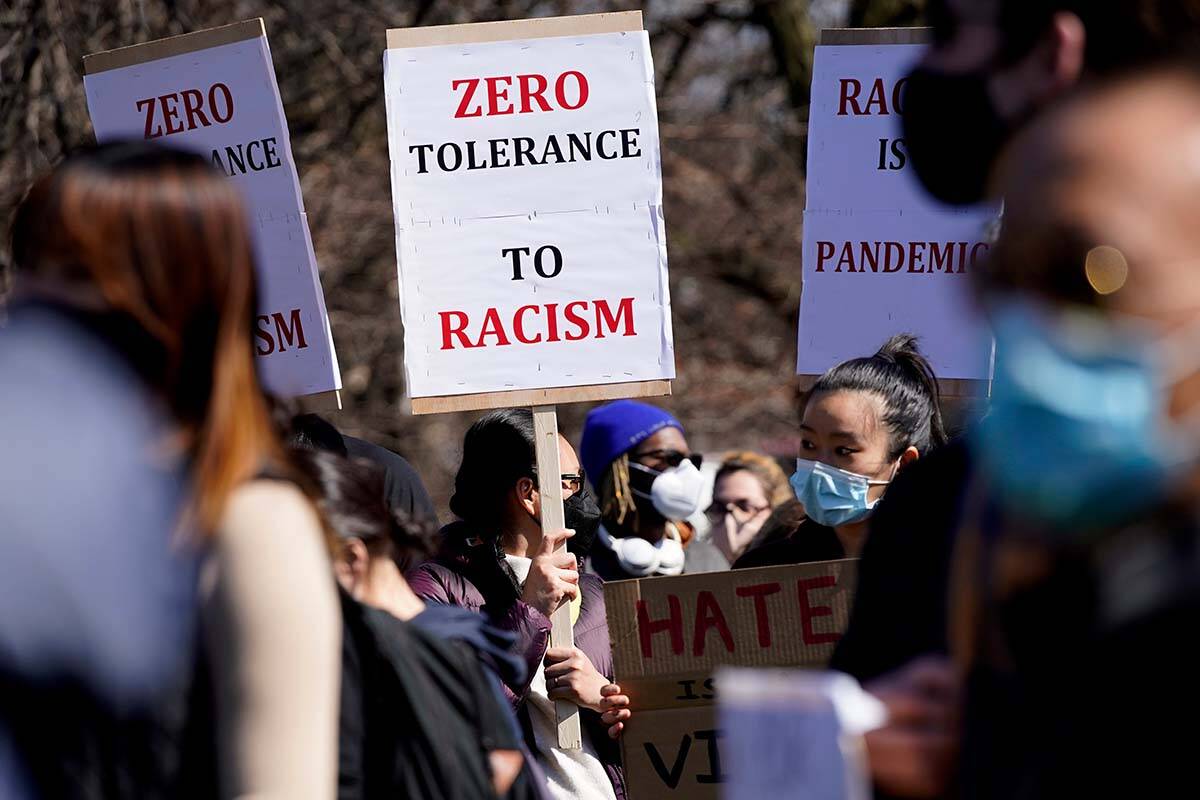Academics and advocates are celebrating the introduction of B.C.’s new anti-racism data legislation, but say it will be how the data is collected and used that will prove just how meaningful of a step forward this is.
The province announced the tabling of its Anti-Racism Data Act on Monday (May 2), with the promise of annual reports detailing the systemic racism racialized and Indigenous people face in B.C.
J.P. Catungal, an assistant professor at the University of British Columbia’s Institute for Gender, Race, Sexuality and Social Justice, said the announcement was a welcome one, although far overdue.
“It will give us a more fine grained understanding about how certain policies or issues are affecting different communities,” he said.
He and others increased their call for disaggregated race-based data when COVID-19 hit. Catungal said it quickly became apparent through anecdotal information that the virus was disproportionately impacting racialized communities in B.C., but that it was hard to push for policy changes without numbers to back it up.
READ ALSO: B.C. Black-based group starts COVID-19 fund, urges officials to collect race-based data
This has historically been the case. Members of racialized and Indigenous communities will be well-aware of systemic barriers or patterns of racism they are up against, but when they speak up and try to share their stories, they aren’t taken seriously.
Collecting data, although far from the full solution, provides one concrete step forward, Catungal said, as well how it is collected and used will be incredibly important.
“We know policy makers and the public respond to hard numbers.”
Yuvraj Joshi, an assistant law professor at UBC, said taking an intersectional approach will be vital. For example, he said, the data could help demonstrate how racialized people with disabilities are more vulnerable to policing, criminalization and incarceration, and how their experiences may differ from racialized people who don’t have a disability.
This was similarly expressed in engagement sessions run in the year leading up to the release of the new legislation. Many participants emphasized the importance of having all their identities – religion, country of origin, gender, etc. – reflected in the data. Metis people, specifically, expressed exhaustion at always being lumped in under the umbrella “Indigenous” category.
Other issues raised centred around historical mistrust with the government.
Indigenous participants in particular raised concerns about how their data would be used. One said they fear if the data reflects poorly on their community, social workers could come and take their children away. Others said the way questions have been asked and data has been framed in the past has only perpetuated negative stereotypes about Indigenous people and furthered the racism they face.
They also questioned whether the data would turn into real action, pointing out how little has been done to address unsafe drinking water and missing and murdered Indigenous women, despite the facts available there.
READ ALSO: Ottawa won’t set new deadline for providing clean water in First Nations communities
Participants from both Indigenous and other racialized communities expressed the need for the data to be in the hands of those impacted by it. It should be harnessed to strengthen and empower communities, not draw pity, they said.
In its announcement Monday (May 2), the province said it will put safeguards in place to ensure the information it collects is protected. It said it is also creating a data advisory committee to work with the government on implementing the legislation.
Joshi said it will be important that the data is always considered in tandem with the anecdotes and lived experiences of Indigenous and racialized people.
“We need to give flesh to these numbers. Behind these numbers are people’s lives and stories,” he said.
The first annual public report is set to be released in May 2023.
READ ALSO: B.C. to collect data on ‘invisible’ racism in provincial services
@janeskrypnek
jane.skrypnek@bpdigital.ca
Like us on Facebook and follow us on Twitter.

